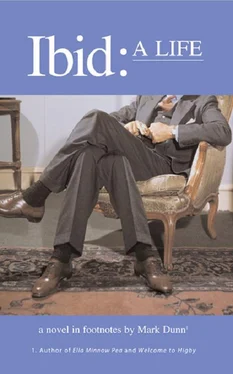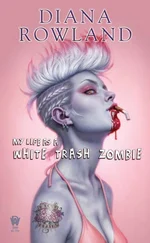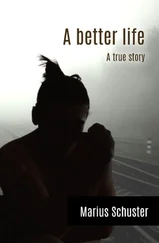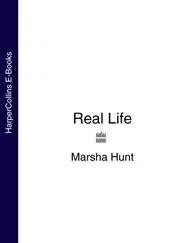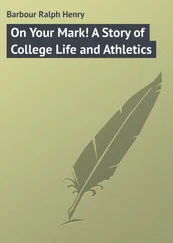June 18, 1935
My favorite nephew Jonathan,
Nearly a month has passed and I know that the FBI has given you very little hope of ever seeing your little Addy Andy again. I keep thinking of that Mr. Hauptmann who killed the little Lindbergh baby and I have to wonder, did Hauptmann have a brother? Though the handwriting in the two ransom notes is very different, it is my hope that it is the brother who took your child and I will tell you why. Because I believe that unlike the first Mr. Hauptmann, this Mr. Hauptmann could be a different sort of man entirely — one who will hold little Addy Andy somewhere safe and warm. Perhaps he conveys his baby captives to some secret nursery where they are suckled and dandled and cared for with a gentle Germanic hand. That would be a wonderful thing to learn, would it not? I believe that if one brother is bad, it does not have to follow that the other will also be bad. I would think that there are many brothers who would want to make up for the bad in the evil, murderous sibling. I know, for example, that after John Wilkes Booth assassinated President Lincoln, his brother Edgar who was also an actor, often played the clown at children’s birthday parties and sometimes pretended to be Rip Van Winkle and would sleep until time for cake when he would rise up like a big ol’ gobble bear, much to the delight of all the little ones. His name could have been Edmund. Or Eduardo.
I have spoken little of myself during these past few weeks. I will say that I am well and except for the mosquitoes here as large as humming birds, the harsh, damp winters, the uncouth behavior of these Paul Bunyan-pretenders (little boys at heart playing at being big burly men) I am happy to be here. Alaska is the last frontier and your aunt is ever the trailblazer.
Perhaps some day I will be able to see you again. It has been many years since we have been together — many years since I was sent away to deliver in anonymity and without scandal that bastard child that grew arrogantly within me.
Your loving aunt,
Nydia
3. “Cannot thank you enough for helping to bring the child home”Jonathan Blashette to Special Agent Vaughn Dobbs, June 30, 1935, Correspondence Files, Records of the Federal Bureau of Investigation. It took three days to find someone able to decipher the letter that was safety-pinned to Addicus Andrew’s little sailor suit, and then three days more to find someone who could translate it successfully. The language, an obscure Mediterranean dialect spoken by only a handful of natives of the Isle of Fish off the coast of Portugal, posed such linguistic difficulty for Cape May University Mediterranean language scholar Gaffer Hurd that his early attempt at translation into English was roundly dismissed, and the search was renewed to enlist someone more versed in “Piscianeté.” Fortunately, this early effort wasn’t permanently discarded; I found it nestled safely in Blashette’s papers. (Box 71, folder 18), and offer it below in its entirety as curious sidebar:
Dear Mr. and Mrs. Blashette,
Jackle Weebe, my husband (or brother or male cousin or village prelate disguised to look like a beggar-man) got the boy (or baby boy or baby crib mobile or overstuffed box lunch or bucket of mashed fish meal), wrote give-give letter (or ransom note or telegram or thank-you card sent upon receipt of an invitation to an oyster-shucking party) for to give-give us money. I hold the boy (or baby boy, etc.) but Jackle go (or left, or will leave, or is leaving, or will have left — tense unclear here) and me alone with boy (or baby crib mobile, etc.) I wait and wait (or squat and squat, or pace back and forth on one leg like an impatient heron) but take good care of infant (miniature adult, brave little man, wax figurine resembling a weeping Saint Francis of Assisi) and wait so long, I say enough of this! and bring back Avicus Andoo to you with money. I think (I am cognizant, I make a cerebral stab, I choke on the enormity of life’s huge portions) that Jackle got eye-big (scared, frightened?) and left me holding the bag. (Or left the cake to be eaten alone. Or left the umbrella open in the sunshine. Or left the clock without a horological function.) So here the little one is. I bought him the sailor suit (or seaman’s lucky biscuits, or pipe fitter’s line-axe or sequined codpiece). It isn’t necessary to reimburse me. (Or don’t pay me twice for a deed done once. Or dance, little monkey, dance and I will pay you only with monkey kibble and kindness.)
Best wishes (or sincere regrets, or remembering you always as if the years were pebbles on a vast beach, each stone smooth and distinct and beautiful, yet constituents of the myriad wondrous whole, dear friend)
Rondonia Filette
4. The kidnapper’s name was Jack McKevitt Weebe.One theory as to why Weebe escaped suspicion for so long is entirely plausible; with his fingerprints having been abraded from years of working in pumice mines, little Addicus Andrew’s kidnapper left FBI agents only a tracing of sock lint and a single curl of unassigned body hair by which to track him down. The case wasn’t cracked until a bright young investigator not even assigned to the case, Hermes Gasparian, hypothesized that the reason no fingerprints were left at the scene of the crime was not because the culprit had taken special care to wear gloves but because he did not, in fact, possess fingerprints. Weebe was subsequently brought in for questioning along with an old friend of Blashette’s from his circus days, Torso Timmy, (a.k.a. Timmy Briggs), the latter quickly released with apologies.
5. Winny would always remain Jonathan’s favorite artist.Winny’s powerful aesthetic influence on Jonathan lived on long after her death. Because of this now deeply ingrained love of art, Blashette cultivated friendships with artists whenever he could and served as chief patron of the droll and mischievous Fiona Fareed who began her career as a muralist with a penchant for nautical scenes, especially those in which sea vessels take on human characteristics, venture on land, and dance together to happy porcine jug bands. Fareed spent her last years scandalizing the art world by putting flesh and sinew on Georgia Okeeffe’s skeletal bovines and deliberately misspelling Okeeffe’s name in her weakly written, meandering apologies.
6. “Clara has asked for a divorce.”Jonathan’s Diary, 15 January1936. The rest of the entry says, simply, “She doesn’t love me anymore.” One suspects, though, that there was much more to it than that. The kidnapping had obviously left Clara wrung out, nerve-jangled, and no longer comfortable with the clutter of her life, a domestic chaos that included a high-profile business executive husband whose colorful coterie of friends and associates had become a daily vexation. (It was also an open secret that Clara detested the profusion of partially completed jigsaw puzzles scattered on surfaces throughout the house.)
The trauma of the kidnapping had apparently transformed Jonathan’s wife from brassy, gregarious, full-bosomed earth mother to a far more subdued and less spirited brand of hausfrau. I wonder, as well, if the presence of so many paintings of Jonathan’s dear departed Winny hanging about the house (not to mention the painting-in-progress of Winny herself staring appraisingly down at Clara on each of her not infrequent visits to the Greenwich Village brownstone) was a factor in the unraveling of her ties of devotion to her husband. It could also be that Clara had come to realize that, for all his professions of affection, Jonathan had never truly loved her with anything even approaching the intensity with which he worshipped Winny (or even Great Jane or Lucile for that matter). Whereas Jonathan and Clara might have been marginally content to recline among the plush cushions of an easy and respectable domestic union, Clara quickly came to embrace a different scenario, one in which she had the bed all to herself, with all the oddball associates who used to enliven her days and nights, now kept at safe distance.
Читать дальше
